
RUCHI NARAIN: On a creative roller-coaster ride!
by Aparajita Krishna April 7 2022, 12:00 am Estimated Reading Time: 24 mins, 26 secsAparajita Krishna visits filmmaker Ruchi Narain’s world this time – a 360 degree roller coaster ride. Enjoy it!
Ruchi Narain has been in the film and creative industry for over 26 years. She is a writer-director, producer, telling stories across mediums; traversing diverse platforms and formats - feature films, advertising films, digital films, web-series, documentaries, animation, shorts, music videos. Technically one can mark her professional beginning with the film Is Raat Ki Subah Nahi (1996) as First Assistant Director and Costumes. She was a writer, the associate director and second unit director on Hazaaron Khwaishein Aisi. She then wrote and directed Kal: Yesterday and Tomorrow, for which she also raised the money. She went on to write and direct the animation film Hanuman: Da’Damdaar and wrote and directed Guilty, starring Kiara Advani.
She has a production company R.A.T Films along with her partners Ashutosh Shah and Taher Shabbir that has made over 100 commercials as well as produced and released Hanuman Da’ Damdaar. R.A.T Films forayed into the web space with their show Hundred, which the three partners produced, directed and co-created. Ruchi was awarded the Filmfare award for writing Hazaaron Khwaishein Aisi, the Osian Cinefan Critic’s Award for Kal: Yesterday and Tomorrow, and the ITA Award for Guilty.
We get into digital-conversation.
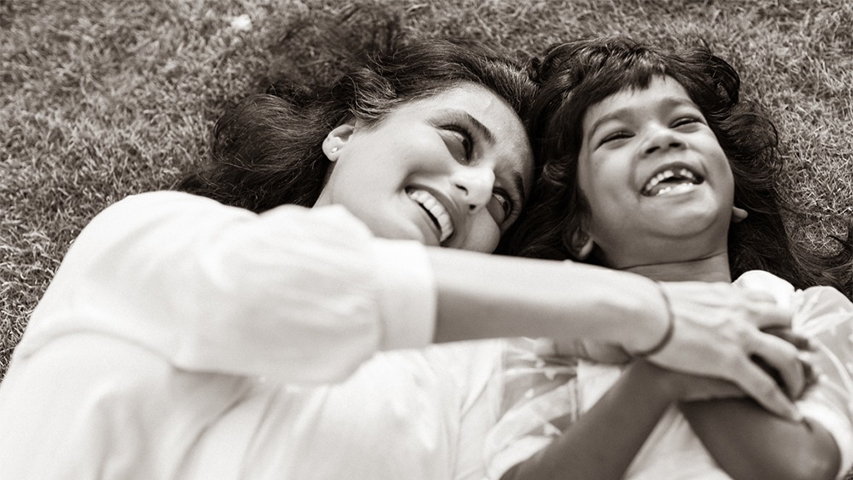
How would you summarize your professional graph so far?
My career graph has been a roller-coaster ride! Good thing that I like amusement parks!
One noted in your television talk that you have a great ability to laugh at yourself and the world. That comes in handy I guess in negotiating the world?
I have a lot of passion and emotion about many things. I’m obsessed with certain things, which often defy logic and good sense. But because my parents and sister are not connected with the film world, their constant appraisals of what I’m immersed in forces me to see myself from a more distant point of view. And honestly, it is often farcical.
In the present of 2022 the making of what work or works occupy you? How do you and your partners at R.A.T Films define your plans and prospects? (R.A.T. as in Ruchi, Ashutosh, Taher)
As partners the three of us have very different points of reference and affinity for different kinds of content. At R.A.T Films we believe all kinds of stories should be told, in different ways. Our only mantra is to create and promote entertaining content that builds empathy and engages. This year we are producing two web series, one is set in a super glamorous space and the other is a period piece of modern history. I’m also excited that Ashutosh and Taher will be starting their first film, which is an edge of the seat eye-opener, based on a piece of often ignored history. I too am working on my next film, which is based on a true story and set in a world yet unseen! We are most excited about our slate for 2023, all of which is being developed this year. We are also in the process of curating our slate 2024!
Has the Coronavirus by default given impetus to a new narrative in our entertainment fare? Has the audience-consumer developed a variable taste? Like the diversity that is India as a nation of people, our culture including films, television, digital fare too cannot be clubbed as a monogamous whole. It has too many tastes to address and of different classes and variables.
I certainly hope so! OTTs offer such varied content and put international content next to Indian content. The rising popularity of Korean dramas is testament to audience experimenting. Some may argue that these numbers are still small. I argue, change always starts small.
With the opening of the theatrical releases will business go back to being normal?
When there’s been such a big disruption to what is ‘normal’, things change forever. Audiences that lived Friday to Friday, are now accustomed to watching content every day. Those who went out for a movie once a month, are sitting down to binge watch shows at home every weekend. People have gotten used to watching MORE content.
Theatrical fare will become less about the content and more about the event of ‘going for a movie’. The economics of going to the movies will be too much for average Indians, and the convenience of OTT too attractive. So audiences will use the cinema as an ‘outing’ and turn to OTT for content. If OTTs persevere to make good content!
Now to go back to the beginning. You grew up in Dubai, Muscat, studied in Mussoorie-Woodstock, then at Overseas Children’s School in Colombo, at the Jumeirah English speaking school. Then studied history at St. Xavier’s College Bombay, did a one year course in mass-media at Sophia College. I trust your placement and displacement in life in these growing-up years from place to place must have been rewarding.
On paper it seems I’ve seen a lot of change in my growing years. However, when I was growing up, I never felt that it was anything unusual because my parents gave us an extremely stable and secure home life, so there was constancy.
Outside the home people changed, locations, schools all changed, but that made me very adaptable and non-judgmental. I’ve just met too many people from all over the world to be able to assign homogenous rules to them all. They all came from very different cultures, as did I, so accepting differences comes naturally to me. This has shaped my outlook of the world and formed the way I connect and relate with people, and therefore understand and assign characters. As a filmmaker, I feel this empathy is my greatest asset. I also feel it is my duty to share this experience as a filmmaker.
Was film-watching part of the curriculum? You are quoted saying ‘Films were so far away from anything I knew.’
The countries where I grew up did not have a cine-going culture. I am part of the video (VHS) generation and we watched syndicated popular American and British TV. But everything was censored by the government. Hindi movies were not part of my growing years. I saw Sholay at 23 when I joined the film industry. I’m relieved to see the Indian audiences are moving closer to the kind of content I relate to!
What was your parent’s profession? You have a sister right?
My father was a Corporate Executive; the Managing Director of a large conglomerate and is now retired. I’ve learned a lot from watching him manage people and grow (and save) his company! My mother was an extremely intelligent and talented person who had no career ambitions whatsoever. She spent her time and energy creating a loving and large world for us, her family and many dear friends. I feel her acceptance of a diverse number of friends also helped me to be able to relate and empathize with different kinds of people. My sister is a photographer (photo editor/Nat Geo expedition leader). Her work has opened my eyes and mind to a kind of understanding and social consciousness I would not have had by just working in films!
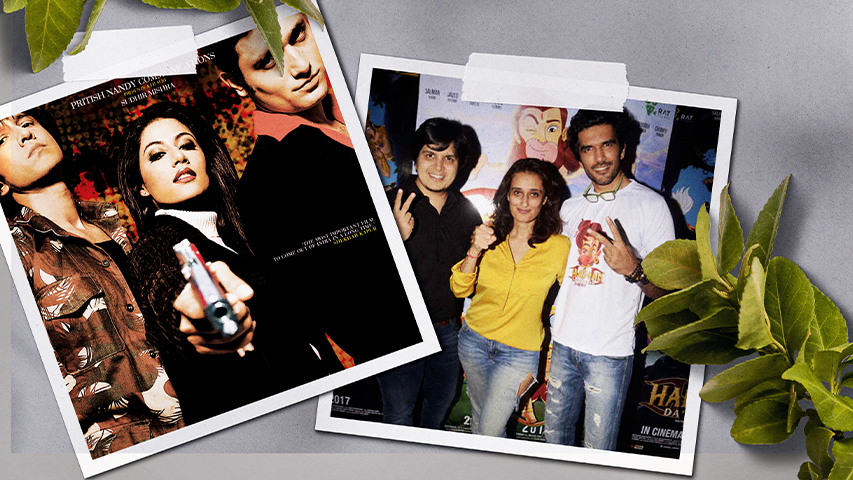
Film Ankur (1974) greatly impressed you. In what way specifically?
I had only watched mainstream American movies or cult teenage movies. The end shot of Ankur really affected me. When the boy threw the stone. It hit me! It made me see the power of cinema, and also the power of storytelling. And I wanted in. I wanted to be in a profession, which would allow me to share my experience and express my understanding of the world. Through film I could have an eternal conversation with whoever wanted to be part of it.
Back in time, which other Indian and foreign films marked your cine-taste?
It was only after I decided to become a filmmaker that I started my film watching education. I was very diligent. I watched one film everyday even after shooting for 16 hrs. And I wrote my ‘review’ of the film, and learnings. I went to all the film festivals and devoured the fare. I even raided Anurag’s library! I read screenplays, which were very hard to come by in those days and I used to WRITE the scene breakdowns of films I watched to help me see how they had structured it. I loved Satyajit Ray’s films and also the American films of Coppola, Spielberg and Lucas. I loved Almodovar and Chungking Express, Nani Moretti, Truffaut. Too many to mention really. I was never a fan of Bollywood as we know it. I couldn’t relate to it, even when I could appreciate some of the skill and talent that made those films.
In your beginning days in Bombay Nikhil Advani informed you of Sudhir Mishra making a film. You had no clue who he was. You went to meet Sudhir. Editor Renu Saluja opened the door. You did not know who Sudhir was but knew who Renu was. Sudhir took a look at you and asked you to do costumes for Is Raat Ki Subah Nahi (1996). Eventually in the film you worked in every department. This sure sounds so much LUCK BY CHANCE! But you must have consciously worked at imbibing knowledge. What was your association with Renu Saluja and Sudhir like?
Renu taught me the craft of filmmaking. She was a good and generous teacher and made me see easily how to create order out of chaos, because she really knew what she was doing. She was a filmmaker, better than most of the directors whose films she ‘edited’. She just never got to be a director because she was a woman and it was very convenient for everyone to keep her in the capacity of editor as it served their purpose. I saw that unfairness up close. She wanted to make a film and was working on a script. Unfortunately she went too soon. It has been a real loss for the industry. She has mentored a whole generation of technicians.
How did learning screenwriting happen? I believe for those times you were quite tech-savvy and knew how to use computers. But it had to be more than that.
After working on Is Raat Ki Subah Nahi, from observing the writing process to the edit and mix, I realized the only aspect of filmmaking that I couldn’t figure out was WRITING! Since I wanted to be a filmmaker, I figured I better learn how to write. So there began my journey. As there were no ‘writing assistants’, I used my ‘knowledge of computers’ (which was basically a willingness to type) to become part of the process for a script Saurabh Shukla was writing for Sudhir Mishra. Though the film never got made, by the end of it, I had understood the process and I started writing; films, TV etc. The day people started offering me good money to write, I stopped. I knew that was the sign that I could now write my own film and become a director!
You co-wrote with Sudhir Mishra the screenplay of Calcutta Mail (2003), Hazar Khawaishein Aisi (2003). Do share some creative anecdotes. Calcutta Mail starred Anil Kapoor, Rani Mukherjee. Hazar Khawaishein Aisi had Kay Kay Menon, Chitrangada Singh, Shiney Ahuja, Saurabh Shukla. Hazar Khawaishein Aisi lay in the cans for 3 years and later went on to become a kind of a cult film.
Hazar Khawaishein Aisi is a very special film because it was the first film I ever wrote. Sudhir was clear about the era he wanted to capture and he was also sure that nobody in India would be interested in watching it. He wanted to make it for an international audience. It was a wonderful journey because there was actually no ‘story’. We were just following the lives of 3 characters grappling with their desires at the time India was undergoing a massive societal and political change. It was only when we finished the script did the story emerge clearly!
There was a fourth part, set in the future. As part of the French co-producer’s contribution, he sent a script doctor. She just told us one thing, ‘Cut out the fourth part. The film ends in part three when the emergency is lifted.’ Her contribution made the story actually. Through the process I realized how true the saying is about filmmaking, it really IS a collaborative process!
On Calcutta Mail, we were working with 2 big stars, Anil Kapoor and Manisha Koirala, and a superbly energetic and enthusiastic rising star, Rani Mukherjee. It was the first time I saw up close what makes these mainstream stars so big. They had a different level of involvement in the film. Anil Kapoor understood that it’s not just good enough for him to be good, the film has to work and for that every actor, the script, direction, songs, edit, everything has to work. The level of encouragement he gave everybody, pushing them to do their best, I had never seen. Rani too was so committed. One day she showed up on set at 5am. I was afraid she’d been given the wrong call time as even her van wasn’t ready, but she had just come early because it was an important scene and she wanted to be on set!
How do you assess Sudhir Mishra with whom you have worked on quite a few projects?
Sudhir is still an active filmmaker, how can I ‘assess’ him!?? He is an extremely knowledgeable person and thus attracts enthusiastic young people around him. He is also not a controlling filmmaker and allows his assistants a lot of leeway and hands-on experience no other filmmaker would. He also takes his assistants everywhere and all of us, who are industry outsiders, get to see and be a part of the real process of GETTING A FILM MADE! The meetings, the socializing, which otherwise assistants don’t get to see. That is why so many of his assistants become writers, producers and directors. I met my partners through Sudhir Mishra. The first person we invited to our office was him! We are all very aware and grateful how fortunate we were to be able to gain so much filmmaking experience because of him.
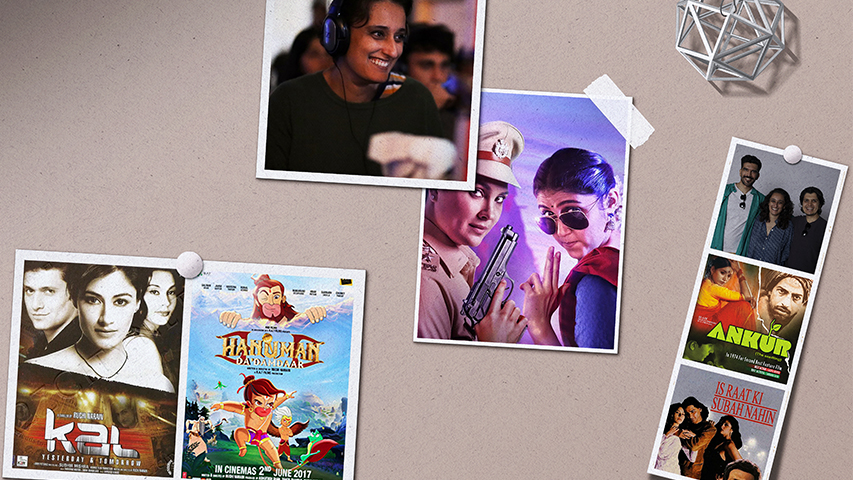
Sahara took up your idea of the television show Talaash. You wrote all the episodes - 62 or so. How was the experience? Which were the other daily soaps you wrote?
Sahara wanted to do a TV series with Sudhir Mishra. He asked us to pitch concepts. I pitched Talaash, and it got chosen by the channel. It was a great learning and experience for me. It was my concept, then I got to write the screenplay, and later, I directed the show as well, 42 episodes! During that period Renu Saluja fell sick and Sudhir too was in hospital, so I became the de facto Producer as well! I was literally thrown into the deep end and I was all of 26! The experience of Talaash gave me the confidence to make my first film at 28, before most of industry colleagues!
With Zoya Akhtar and Reema Kagti you started working on developing scripts. Did they materialise into films?
When we started our company Rizla Films, the industry was a very different place. We thought we could write scripts and sell them to make money and then make our own kind of cinema ‘on the side’ because there didn’t seem to be any takers for the kinds of stories we wanted to tell.
When we wrote our first film we went to narrate it to Javed Saab (Javed Akhtar). I was narrating and after 5 minutes he stopped me. He turned to all of us and said WHY ARE YOU WRITING THIS FILM? We told him we wanted to sell it and make some money. He said we should write the kind of stories we believe in, do what we are passionate about and the money will follow. Nobody ever made money by wanting to make money in our business. That is the best advice I’ve got. He was right.
Our work is out there now. But that was the kind of stuff we wanted to do in 1998! It was not the right time so it took us all longer, but eventually, his words have come true.
Kal Yesterday & Tomorrow (2005) was your first independent film as a director; starring Chitragandha Singh, Shiny Ahuja, Ram Kapoor. Did it do well as well as economically understood by the industry?
Kal was made and released too early. Multiplexes hadn’t even started in full swing. Many people told me it was ahead of its time. I feel there’s no merit in being ahead of your time. It’s better to be in sync with it! In a way the excruciating 3 years we had to wait for Hazar Khawaishein Aisi ‘readied’ our audience, and it was embraced. Even now, I wrote Guilty in 2011, it was made in 2019 and it did well!! Luckily I have many stories in my Drive. They are all coming out now!
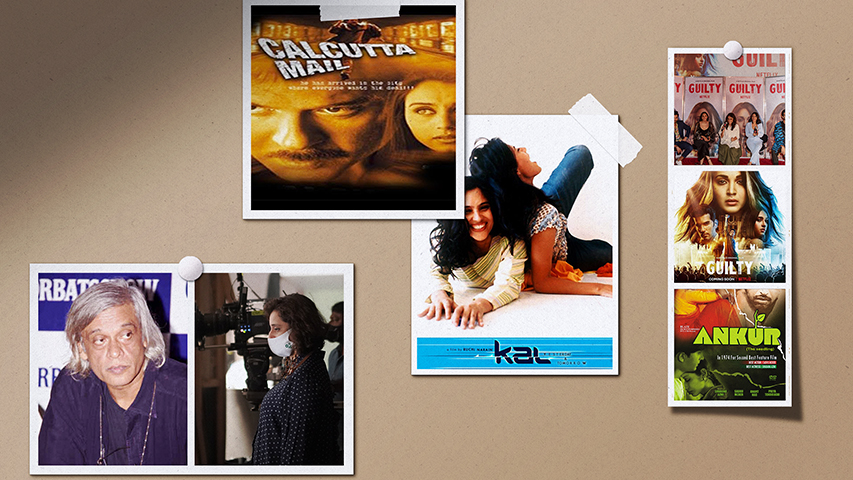
For Kal Yesterday & Tomorrow you collected money from 14 different individuals. “I was brash, or did not understand how things worked in the industry.” You had a massive fight with the head of Sony Pictures. “By the end of Kal…. I had no money.” But you sure were very enterprising. What drove you?
I just want to get my stuff out there. And I’m a Taurean and an Ox in the Chinese calendar. Perseverance is in my nature. And patience. Often I feel I have too much of it!
You turned down Karan Johar’s offer to be an associate director on Kuch Kuch Hota Hai. And instead got into advertising. Made money. Wrote a road-trip movie. Karan Johar agreed to produce it but every young hero approached for casting said No. How do you analyze it?
My deep analysis of that situation led me to write GUILTY. It is a story about MISOGYNY… and what you are up against in this country if you are a woman… and if you are a woman with a point of view.
Hanuman Da’ Damdaar(2017) is an animated tale of adventure about finding dum and what makes one truly dumdaar. It has humour, contemporary flavour. You shot scenes with actors so that the animators could draw accordingly. It has Salman Khan, Raveena Tandon, Chunky Pandey, Kunal Kemmu, Vinay Pathak, Makrand Deshpande, Saurabh Shukla. The story teller is Javed Akhtar. Tell us more about it.
It's on Hotstar. I am a lover of history and what I love most about our ‘Indian mythology’ is its adaptive nature… that is why the stories have lived on for thousands of years. I wanted to bring and spread this love and curiosity to Indian children. I also feel a big problem in India is that we lack a sense of humour, and that stems from the fact we don’t have any FUN content for kids. This is my contribution to do something about it!
You then wrote a film on Rape along with a co-writer - GUILTY. Karan Johar really liked it. And in real life within 2 weeks Nirbhaya happened. You are quoted saying ‘We felt at that time that making the film would look too opportunistic.’ Guilty streamed on Netflix in 2020. You were the writer-director. It dealt with misogyny. Starring Kiara Advani, it is set in an elite Delhi college and centers around an allegation of rape during the MeToo Movement in India. Tell us of the film’s relevance and how was it received? Did it anticipate what was churning in the underbelly of urban society.
Unfortunately by the time I made Guilty it was even more relevant than when I wrote it 7yrs earlier! At that time one of the questions I was asked was WHY I want to do a story about rape… when nobody talks about it… it didn’t seem relevant at that time to them. I said it is going to become the most relevant topic in the next 5 years and when they asked me why I thought so, I said, because I’m a woman. I can feel it. The gap between how women saw themselves and their ambitions in life were at direct odds with how men were accustomed to seeing them. Of course a violent clash was to follow. And it has.
Hopefully with awareness, laws, conversations and everyday conscious endeavors, in a generation we can reduce this. But it is a battle that we all have to fight together everyday. People are still talking about Guilty. Feminist groups still use it as a point of discussion, because it portrayed rape from the POV of an ‘unapologetic’ and practical victim. Both qualities that women are not ‘granted’ by Indian Society. Though I get a lot of love and appreciation for Guilty, I prefer to use that conversation to further the one about how much distance we still need to travel as a Society. Awareness is just the beginning.
During the pandemic you delivered the web-series Hundred for Disney-Hotstar. Right?
Yes. We were a month away from our committed Delivery Date, and the country went into lockdown.
Though Disney-Hotstar was very understanding and put no pressure on us, we took it as a challenge and managed to switch everything to ‘home’ studios overnight. We managed to do the music, sound, VFX, mix and grade all outside the traditional studio space, and with a lot of support and cooperation from the platform, our show went on air as planned!
You are quoted saying, “The most important thing in my career has been the ability to be fluid and shapeshift. As long as you can keep your intent intact then its great if you shapeshift in any direction. Be truthful to yourself. In anything you do you will have to face a minimum of 10 differing opinions and pieces of well-meaning advice. How you combat that is only by being true to your intent.” A very fine philosophy and lesson. Has it been easy to cope with professional circumstances? Are the market forces easily negotiable?
Everything is up for negotiation. It just depends how much, and what all you are willing to negotiate.
Of course it hasn’t been easy for a variety of circumstances, but mainly because I won’t change my intent of creating the content. I’m sure I would’ve made more money, and possibly met more success in another field. But sharing my world views in my stories is what fulfills me and that is why I came into this profession.
Between theatrical release and OTT content there is an obvious distinction made by the makers. How do you sum it? Where are we standing in our OTT fare, web-series, digital content? In India is there respect for different genres? Abroad they have had A House of Cards, Sacred Games. And budget cannot be the only criterion for standard of work.
In the beginning it was about the vision of makers, which was why films like Guilty got made. But eventually, OTT is also subject to market forces and its own numbers game. i.e the audience. If the audience evolves so will the content. One hopes with the variety on offer, they will… but let’s see how content holds up in the coming years.
Anil Kapoor had bought the rights of 24. Everybody in our industry has been developing the type of content that comes from the West. Are derivatives, or adaptations of foreign shows, going to be the Indian future? Do the producers only want sourced material or originals have been taken for OTT? Tabbar, Grahan were very good.
I have only ever done original stories, so personally I am most excited at the prospect of doing an adaptation of an existing format, as it’s a new challenge and skill set for me to develop.
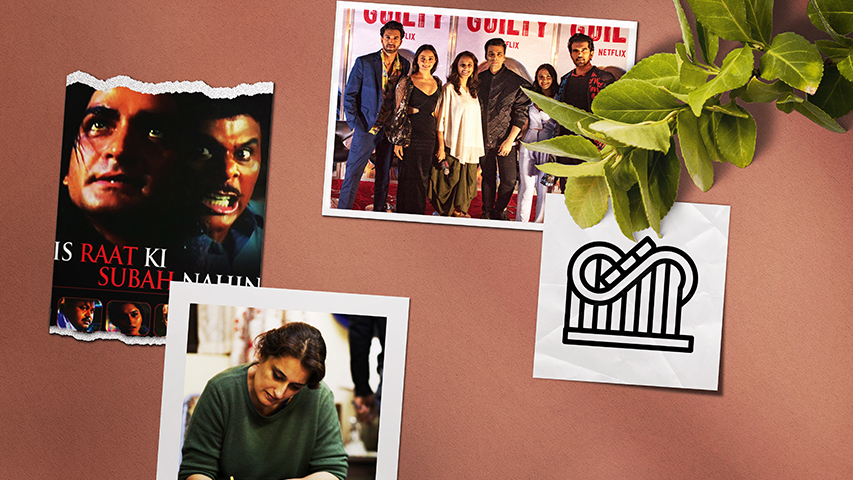
What is your best memory in recall? Personally and professionally?
I’ve had a tumultuous and varied career now of over 20 years. From films, to advertising, documentary, wildlife films, animation and now OTT. There’s still a lot to do. Each project feels like its own lifetime And I have many more lifetimes to live!
Last year, I did a social experiment film based on an idea a friend in Advertising had; on how women are treated differently when it comes to money. Together we developed the concept and what emerged was a short 5 minute film on Women and Financial Literacy called The Divide. My partners at R.A.T Films turned the whole thing around from idea to delivery in one week and rose to the challenge of doing it unscripted! I was so convinced that even the most empowered women step back when it comes to controlling their own finances, that we actually conducted it as a social experiment and filmed the outcome with 8 cameras.
The participants were only told it was for Women’s Day. I would ask them a variety of questions and they just had to step back or forward. What resulted, seems to have made some kind of history as within hours of its release, it went viral. To be on the receiving end of a genuinely viral video that triggered so much discussion, emotion and love was indeed a high. It’s amazing to have made something you believe in which everyone seems to have seen!
Is gender-discrimination, sexism still rampant in the industry you work in or is the level playing field more equal now?
It is still there, as everywhere else in Society, but there are many people now who are conscious of it, and with those people changes are possible. It’s very slow, but steady. At least now we have a seat at the table and don’t have to be grateful for it!
We have women film directors, writers, editors, technicians, honchos. Though far less in numbers in films but hugely so in our TV space. And the irony is that our TV fare, serials, driven by women in channels and in production are the most regressive and appalling of all times. What explains this dichotomy? TV in India started very progressive, literary and fell to abysmal standards. Women are policy-makers too.
It is about the audience. TV caters to the widest audience, thus it has to have the most basic non-alienating values. When TV started it was not governed by market forces, so it could be policy driven and in those days our government policies were progressive. The newly Independent India was led by progressive thinkers so the ‘partyline’ was progressive. Unfortunately, market forces are not progressive, and if we had to shift back to government-sponsored content, it would not be progressive either. It has nothing to do with women running content. They are business people and they will make what sells.
Which is the one work from your peer group (could be around the world) that you wish you had made?
I wish I had the opportunity to make A Suitable Boy. It was a book I really saw very vividly when I read it. I loved the many layers of India the book showed. Alas… maybe one day when the rights become available again!
The films I’ve loved in the last few years have been Court, Sairat and S Durga.
Tell us about your family. You have a sister. You adopted a daughter, Vira, as a single mother in 2019. How is motherhood making you grow? Must be making you grow taller.
Not taller… but fuller. I am swelling, not just in size, but I am overwhelmed with joy and gratitude every single day. All the clichés suddenly show their truth, and children just force you to be the best version of yourself. You are who they are looking to. We better live as the people we want them to be.





-173X130.jpg)

-173X130.jpg)
-173X130.jpg)
-173X130.jpg)
-173X130.jpg)
-173X130.jpg)